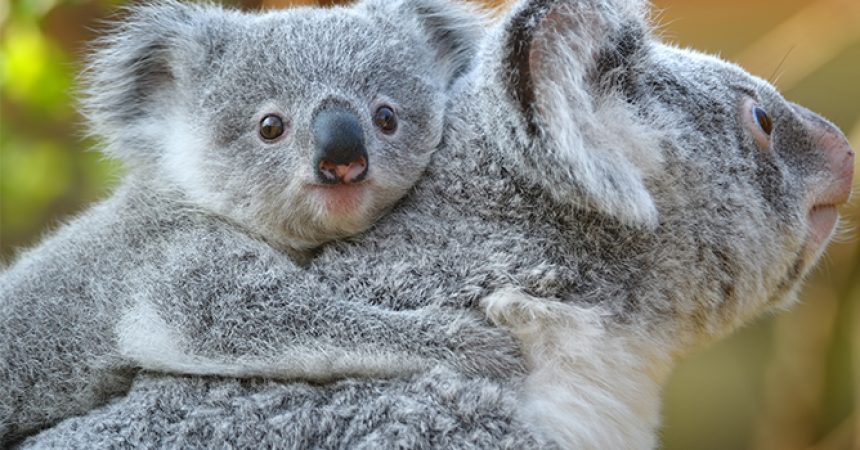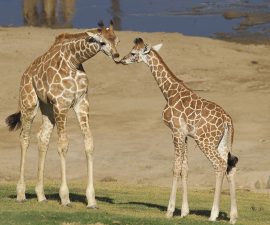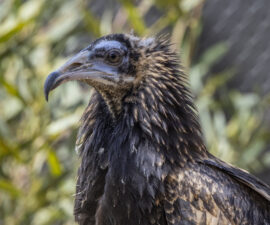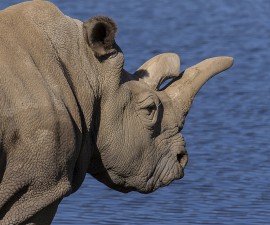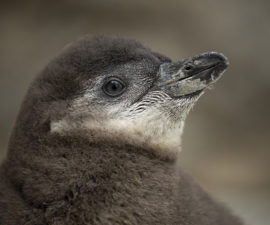8 Action Steps for a Healthier Planet
On this Earth Day, let’s take a moment to appreciate that actions big and small—from global initiatives to the things anyone can do at home—add up to make significant contributions to conserving wildlife and creating a world where all life thrives.
To identify these actions, we reached out to San Diego Zoo Wildlife Alliance scientists, researchers, and partners in each of our conservation hubs. They shared some of the most important actions we can take to help wildlife in our key conservation hubs around the world.
Our guiding philosophy recognizes that the health of humans, animals, plants, and our shared environment are inextricably linked. The health of one depends on the health of the others. You can read more about our approach here.
With that in mind, here are eight action steps to make for an impactful Earth Day. Take as many as you can; they all get us closer to creating a world where all life thrives.
Be a Wildlife Advocate:
“We can all seek out sustainably harvested Forest Stewardship Council-certified timber to reduce illegal logging.” — Mathias Tobler, Ph.D.
Be Energy Conscious:
“Walking or cycling to work is a good way to reduce your carbon footprint. Also, using energy-efficient lightbulbs, appliances or investing in solar panels or an electric vehicle can limit the stress on ecosystems and may even save you money in the long run.” — James Sheppard, Ph.D., and the Taronga Conservation Society
Travel Responsibly:
“Avoid visiting big cat ‘breeding centers’ or tourist attractions where you can pose with tigers and other big cats. These institutions could be illegal wildlife farms or tied to wildlife trafficking.” — Elizabeth Oneita Davis, Ph.D., and the Government of Vietnam
Shop Smart:
“Purchase Roundtable on Sustainable Palm Oil-certified products, as these are made with palm oil from best practices farming. Palm oil production is increasingly threatening great ape habitat in Africa after decimating orangutan habitats in Asia.” — Ekwoge Abwe, Ph.D., and Ebo Forest Research Project
Support Climate Policies:
“Climate changes affect habitats all over the world. By supporting climate-wise policies and initiatives in your communities, you can help to reduce rampant carbon dioxide emissions that disrupt African savanna climates.” — Shifra Goldenberg, Ph.D.
Be an Ally to Nature:
“Take the opportunity to Safari in your own backyard! Snap #nonselfies of the nature around you and learn about the biodiversity of San Diego and its surrounding Southwest habitats.” — Debra Shier, Ph.D., Meredith Clancy, Ph.D., and the San Diego Natural History Museum
Be Hands-On:
“Learn to identify invasive weeds and remove them. Consider planting native plants, or volunteering with a wildlife conservation organization in your area.” — Bryce Masuda, and the Mauna Kea Forest Restoration Project
Talk About It!
Talk about climate warming with your friends, family, and civic leaders. To save sea ice for polar bears and improve conditions for all of us, we must move away from burning fossil fuels for energy—switching instead to energy from the wind, sun, and water. By changing the conversation, we can all work together to influence decisions on where our energy comes from. — Nicholas Pilfold, Ph.D., and Polar Bears International

